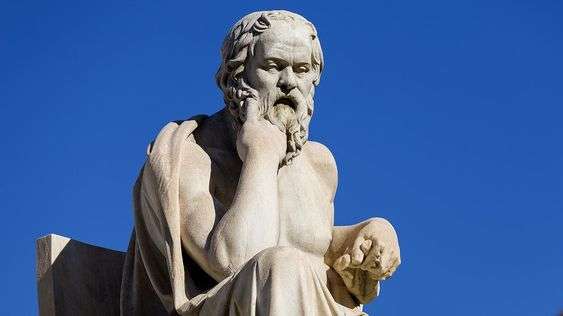We frequently become lost in the maze of contemporary complications in our continuous search for pleasure. We are constantly bombarded with information, diversions, and expectations in our fast-paced society, making us feel disengaged and dissatisfied. Despite this chaos, there is a wealth of knowledge from classical thinkers that may direct us toward a happier and more fulfilling life. We may learn important insights from the writings of thinkers like Socrates, Aristotle, Epictetus, and Seneca that are still astonishingly applicable to our search for fulfillment today.
Pursuing Virtue rather than Pleasure
Ancient thinkers serve as a reminder that lasting happiness is not found in the transient pleasures that society frequently elevates. They promote the pursuit of virtue as the surest route to fulfillment instead.
Socrates thought leading a virtuous life—characterized by traits like discernment, fortitude, justice, and self-control—brings a more incredible feeling of fulfillment. He said that the main purpose of human existence should be to comprehend and cultivate these characteristics.
The Influence of Self-Awareness
The famous quote from Socrates is, “Know thyself.” This advice acts as a guiding concept for leading a happier life. Understanding our shortcomings, skills, and desires via self-awareness enables us to make decisions that are in line with our true selves. We may handle life’s obstacles with more clarity and make decisions that result in true pleasure by looking at our beliefs, motives, and prejudices.
The Middle Side of Stability
Aristotle popularised the idea of the “golden mean,” highlighting how crucial it is to achieve harmony in all spheres of life. He noted that extremes frequently result in dissatisfaction. For instance, generosity sits between excess and stinginess, while courage sits between recklessness and cowardice. We may foster harmony within ourselves and our relationships by pursuing moderation and avoiding excesses.
Choosing a Stoic Mindset
The philosophy of stoicism, which rose to popularity in antiquity, teaches how to remain calm in the face of difficulty. Famous Stoic philosophers Epictetus and Seneca promoted regulating one’s responses to outside circumstances. They believed that pain originates from our perceptions and responses to circumstances rather than the actual occurrences themselves. We may handle difficulties without allowing them to disrupt our inner calm by engaging in mindfulness practices and building emotional resilience.
Abstraction from Outside Pleasures
Seneca emphasized the value of distancing oneself from material things and pleasures in his works on stoicism. He maintained that developing an internal sense of contentment that is independent of one’s environment is the path to real freedom and pleasure. This viewpoint inspires us to enjoy the little things, be grateful for what we have, and let go of the incessant want for more.
The Art of Friendship
Ancient philosophers recognized the value of authentic and meaningful relationships. Aristotle proposed that friendships founded on virtue and mutual respect are essential for a happy life. These friendships go beyond superficial connections and provide emotional support, intellectual growth, and a sense of belonging. Nurturing such relationships fosters a sense of happiness and well-being.
Accepting Transformation
The Stoics serve as a reminder of life’s transience. Seneca wrote a lot about how everything is temporary and that death is inevitable. While acknowledging the transience of life may seem gloomy, it may motivate us to live more completely in the present and value each experience and connection as it arises.
The teachings of ancient philosophers offer a timeless road map to a better and more fulfilling living in a society that is frequently dominated by consumerism and quick satisfaction. We may handle the complexity of contemporary life with a sense of purpose and happiness by seeking virtue, practicing self-awareness, achieving balance, embracing resilience, detaching from external pleasures, fostering relationships, and understanding life’s impermanence. As we learn from the past, we build a link between antiquated ideas and modern problems, paving the road for a more contented and joyful future.





Comments are closed.